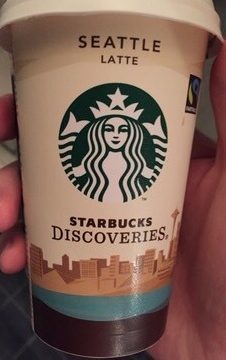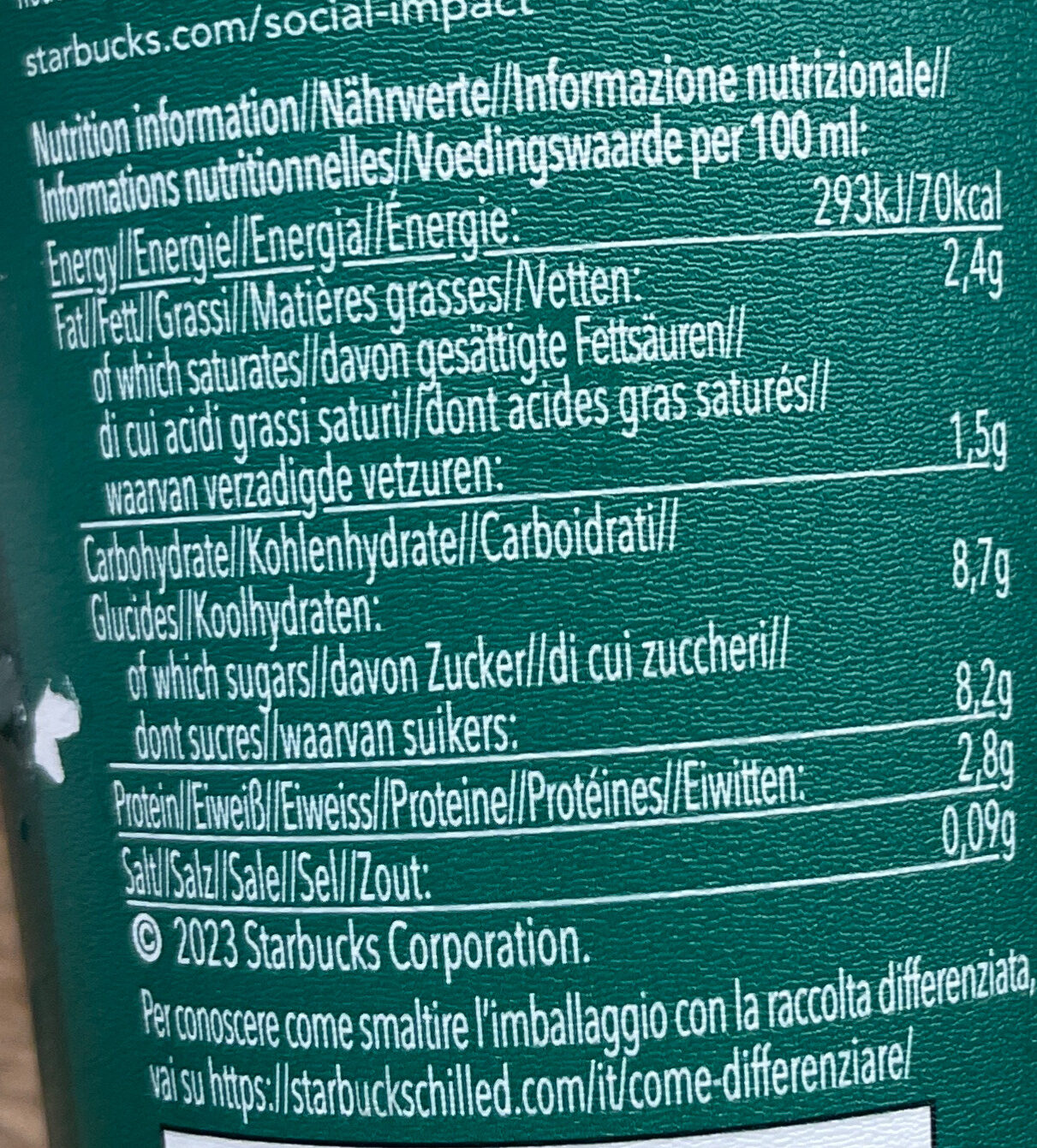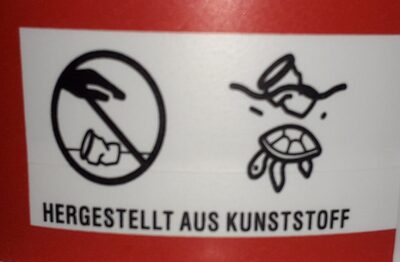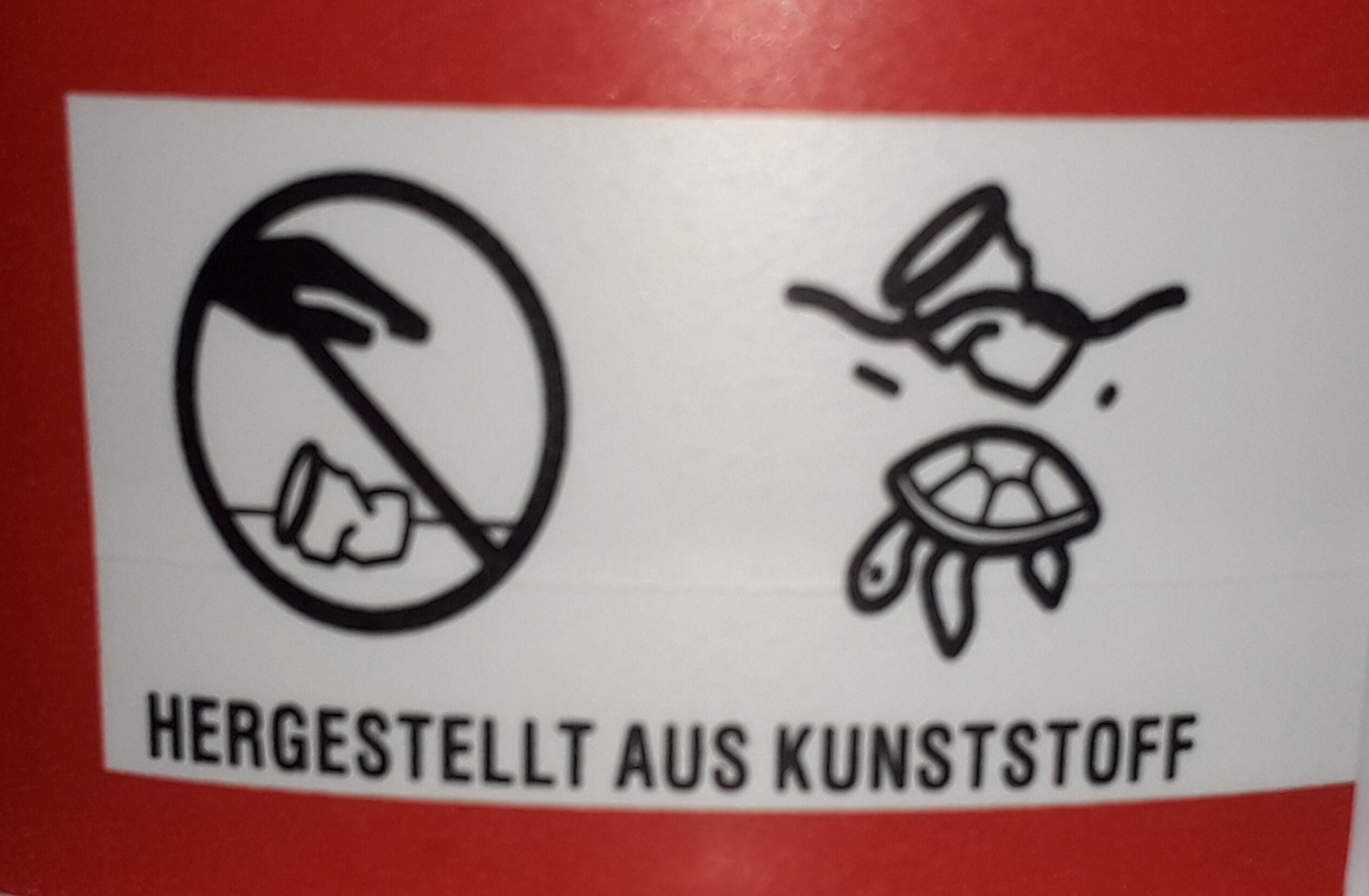Caffe Latte - Starbucks - 220 ml
Barcode: 5760466920537 (EAN / EAN-13)
Common name: Caffé latte
Quantity: 220 ml
Packaging: Plastic, Fresh, Pp-polypropylene, Tumbler, Goblet, Stück
Brands: Starbucks
Categories: Beverages, Dairies, Dairy drinks, Coffee drinks, Iced coffees, Latte macchiato, de:Espresso
Labels, certifications, awards:
Conservation international, Green Dot

Origin of the product and/or its ingredients: Dänemark
Origin of ingredients: Denmark
Manufacturing or processing places: Viby, Dänemark
Traceability code: DK M224 EC
Link to the product page on the official site of the producer: https://www.starbuckschilled.com/de/prod...
Stores: Edeka, Marktkauf, Penny
Countries where sold: Austria, France, Germany, Switzerland
Matching with your preferences
Report a problem
Data sources
Product added on by openfoodfacts-contributors
Last edit of product page on by patkica.
Product page also edited by anticultist, bartolomeu, beniben, date-limite-app, fiffi, foodless, foodorigins, foodrepo, ftbz, grumpf, inf, julie-yuka, kiliweb, magerharz, openfood-ch-import, packbot, quechoisir, tacite, tacite-mass-editor, thomas-1, yuka.CKIfOO-CRJ04TMjX9bA77AqfS7rFWa5aNGUtog, yuka.DZtHDN-QOPA-H8XAwb0Q_T-bSv64KOIGCmc9og, yuka.DeEYPI6WAOMIO93Y86093mGiJN_KKvhIP1wiog, yuka.DrVGH4HVHJMHBsvI-7IKhxWkGvrNJ_lBGHoNoQ, yuka.E5Z6NvKnNv4aLtzOgKZtjGe_MeO-PtNQFl4coQ, yuka.Hb1OJvmLQ-gtMvTd3bM_wGC_OeXALd5lJmcWoQ, yuka.POtfMo6rAuY_BcGP3oYqhQixP_-xOMFHIWBTow, yuka.XeB-EvSPL5AoLvHy6YklzSe2N73-JeVCG3BXow.













